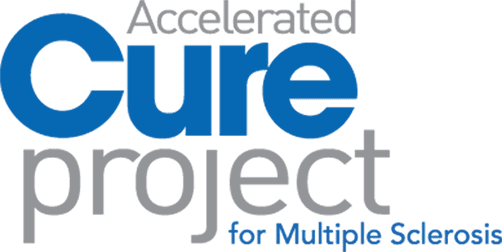It’s vitally important to support caregivers and pay attention to their needs, as they are the backbone of many families. iConquerMS continues to expand its research collaborations to include MS caregivers, in hopes of easing their burdens and improving MS research in the process.
In MS, the role of the caregiver is constantly changing. As MS caregivers are generally unable to anticipate the onset of a relapse, the progression of the disease, or even the functional ability of their loved one over the course of a day, the resulting ups and downs can be stressful and draining for everyone.
According to a survey developed by ACP and UsAgainstAlzheimer’s, the top three challenges experienced by caregivers are uncertainty about the future, stress, and not having enough “me” time. Other common problems include not getting enough sleep, the inability to leave home, safety, and financial concerns. 77.5% of caregivers do not have sufficient access to the help and support that they need.
A good day is when nobody’s getting hurt, nobody’s falling down and everyone’s taken care of.
Care Partner Advisory Panel Participant

In 2012, the National Alliance for Caregiving (NAC) conducted a survey of 421 individuals who provided care to a friend or family member with MS. Results indicate caregivers spend an average of 24 hours per week taking care of their loved one (more in cases where the care recipient experienced frequently changing symptoms).
According to the NAC survey:
The most common negative impacts of providing care were financial (due to unemployment), being unable to engage in hobbies, and issues with mental health.
Almost half of respondents felt they didn’t have a choice taking on caregiving responsibilities. Those that did felt fewer negative and more positive impacts.
Caregivers providing care to those with cognitive impairment were more likely to feel negative impacts from their role.
Many were constantly worried that their care recipient would take a turn for the worse and wished their symptoms were more consistent or stable.
Half of respondents reported being physically exhausted.
Nearly one third were physically injured as a result of providing care.
Caregiver burden is “the strain or load borne by a person who cares for a chronically ill, disabled, or elderly individual.” Increased caregiver burden can have a profound impact on the care provider and recipient. Without proper training (for example, lifting or transfer techniques), the physical aspect of providing care to someone with MS can potentially lead to injury. The cognitive effects of the disease (problems with memory, attention or information processing) are far reaching. Both of these add to caregiver burden and have a ripple effect on the lives of those involved.
That’s our role as partners, I’m there to help where possible.
Care Partner Advisory Panel Participant
Research suggests that the cognitive symptoms of MS have a greater influence on caregiver distress (and reduced quality of life) than physical disability. Results show depression in a person with MS directly impacts depression in their caregiver.
Recognizing that every situation is unique, people are generally forced into different roles when chronic illness or disability strikes. The individual providing assistance typically takes on added responsibilities, while the recipient loses independence. Providing care to a loved one can bring individuals closer. However, it can also put a strain on relationships, especially if changes aren’t welcome and affect future plans. Adjusting to new roles is challenging, but adjusting to unwanted ones is even more so.
Danish researchers found MS significantly affects the probability of remaining in the same relationship. Data shows the probability of a marriage continuing after five years is 86% for people with MS versus 89% in healthy controls. After 24 years, the probability drops to just 33% for people with MS compared with 53% in the control group. A 2009 study found there is a more than six-fold increase in the risk of divorce if the affected spouse is the woman (21% versus 3%, if the man has MS). Investigators in Sweden concluded the disease is associated with a 21% higher risk of divorce among men, but not women.
While MS caregivers include parents, children, friends, and neighbors, research shows up to 70% are the spouse of the person with MS.
I’ve never known her to walk but for me it was love at first sight so you just have to find a way to make a marriage between 2 people with MS work. We’ve been married for over 17 years now.
Care Partner Advisory Panel Participant
Recognizing the signs of caregiver stress is important. Physical signs may include fatigue, exhaustion, trouble sleeping, decreased strength and endurance. One should also watch for psychological or emotional symptoms, such as irritability, anger, depression, inability to concentrate, memory problems, social withdrawal, and feelings of isolation.
Caregiver burnout is the unfortunate result of high levels of burden over an extended period of time. Understandably, this has dire consequences for administering care.
My entire life revolves around taking care of her.
Care Partner Advisory Panel Participant
Helpful tips to avoid caregiver burnout

Know your strengths, where you need help and the resources available to you.

Make sure you have a support system to help you through difficult and lonely times.

Good communication is key. Don’t be afraid to ask for help.

Educate yourself. Knowing more about MS symptoms, treatment options and side effects can help you feel more confident and in control.

Have ways in place to reduce stress.

Staying organized can help keep stress to a minimum and free up more time to do the things you enjoy.

Don’t forget to take care of yourself!

Are you an MS caregiver? iConquerMS Caregivers is an ideal resource for you! The initiative is part of the iConquerMS community of people living with MS, their caregivers, scientists, doctors, and others who have come together to understand MS and search for solutions. You’ll find information and resources to help answer the questions that MS caregivers often have. You’ll discover opportunities to participate in research designed to improve the lives of MS caregivers and the people they care for. By joining iConquerMS Caregivers, you can share your knowledge, experiences and questions while also benefiting from the wisdom of fellow caregivers who share similar circumstances. The more people that add to the well of knowledge, the deeper and more accurate our understanding of MS will be. If you provide care to someone with MS and haven’t already done so, please consider joining the iConquerMS community with your loved one today!
Other Resources
There are a number of other excellent resources for caregivers that offer information and support free of charge:

The Family Caregiver Alliance provides state-by-state resources, including respite providers.

The National MS Society’s MS Navigators program connects caregivers to valuable resources

The Society also offers the guidebook, Caring for Loved Ones with Advanced MS: A Guide for Families

The Caregiver Action Network offers an online forum called Care Chat for caregivers to support one another

Can Do MS offers the Embracing Carers webinar series that addresses many relevant topics




